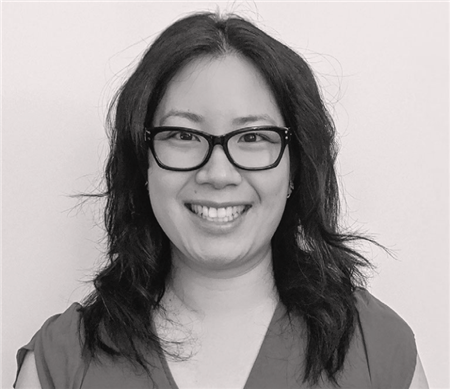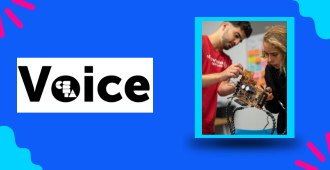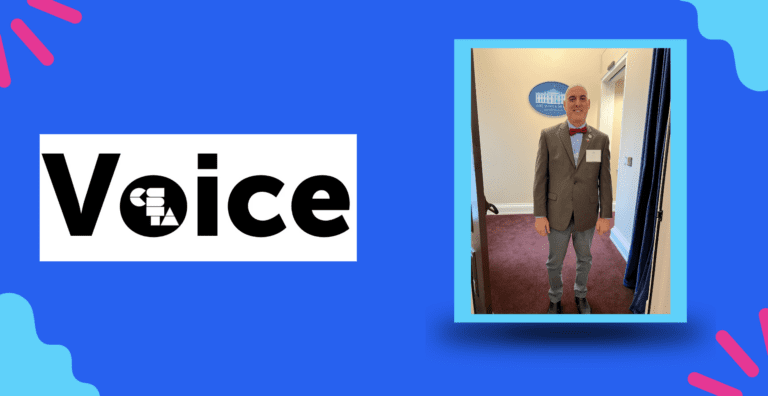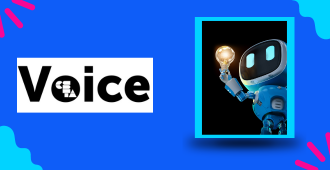
“As I transition into the STEM/CS role at my school instead of integrating CS into my classroom like I’ve done for the past eight years, I would love to lead a professional learning community around culturally responsive teaching and fostering identity in computer science.”
Full Story
“As I transition into the STEM/CS role at my school instead of integrating CS into my classroom like I’ve done for the past eight years, I would love to lead a professional learning community around culturally responsive teaching and fostering identity in computer science.”
Shiela Lee is a special education elementary school teacher entering her tenth year of teaching in New York City. This is her first year as a STEM teacher and she is committed to creating curriculum that is anti-racist and empowering her students to challenge stereotypes. Lee is also part of the 2020-21 CSTA Equity Fellow Cohort.
“Equity in teaching means really recognizing and valuing the identities of my students,” said Lee. “To me, that means knowing my students, helping them see whose voice is excluded and included within computer science, and helping them recognize any privilege they have and how they are situated within the power structures of society.”
To help students in achieving this, Lee is committed to expanding her knowledge. She is actively reading books like How to be an Anti-Racist by Ibram Kendi and seeking out discussion and interest groups. Lee is also discussing her identity as an Asian-American with her students. This is just one way she works to create a safe and vulnerable space for her students.
“As an elementary school teacher, I start the year making identity webs with my students and discussing skin color. Students then affirm and challenge identities or labels that have been given to them by others and recognize that there are ways in which we give ourselves labels and others give us labels as well,” shared Lee. “I’ve found the most powerful moments are when we can share our stories of identities that we are proud of and identities that we challenge. I believe in providing equitable spaces for students’ voices to be heard, beginning with sharing about their identities. Equity in teaching also means that I create spaces where students can discuss why particular groups like our LGBTQ peers, BIPOC, and people with disabilities are often kept out of the field of computer science. Supporting my students to understand whose voices are heard, whose voices are actively excluded, why, and how we can bring about change, are all part of my understanding of equity when teaching.”
Additionally, Lee focuses on intertwining teaching computer science to students with disabilities. “One way I have improved access and engagement for my students with disabilities is by incorporating movement and lots of visuals for my student for unplugged and plugged lessons,” she said. “One example is when I have my students program each other to do physical movements like “move left, move right, jump, say ‘Hello, World!'” to help them understand that computers follow steps and need a programmer to write those steps.”
Her students with speech impairments benefit from the physical movement of the program. Lee also creates cards for the students that resemble coding blocks so they don’t have to draw or write. The students then use those cards to create the algorithm for their partner.
Lee also increases accessibility through the use of the “Expert Wall.” She is currently teaching remotely, but when she is in the classroom, this expert wall is where students who are experts in “debugging” or “pair programming” or other topics can put their velcroed picture onto a wall, and students in the class can approach those students instead of asking her for help.
“They are experts in their learning and I want to develop their agency in seeing themselves as experts,” shares Lee. “Everyone has their picture on the wall and students put their picture by topics that we co-created as a class that would be helpful to the class community. Every two weeks, students move their picture next to new topics they are experts in. This improves everyone’s access to my students of disabilities who may not always be seen as experts. Additionally, this engages everyone in the class and helps create community.”
To further her work in creating an equitable classroom, Lee applied to become and was selected as a CSTA Equity Fellow. “I would like to brainstorm with other educators [to answer] how can we make equity sustainable in computer science? How can we make it so that people feel welcome, included, and also create a model that is sustainable in computer science education in that it will carry students through when they actually enter the field of computer science.”
Through the fellowship, Lee is looking forward to learning from her fellow teachers about ways to engage her predominately white students. “I believe it is important to give voice and access for oppressed groups of people, but also to acknowledge that white privilege has given rise to technology like artificial intelligence that neglects different skin tones.”
 Lee points to the work of Joy Buolamwini around creating equitable and just technology. She’s also interested in learning how to intertwine the histories of people like Katherine Johnson into her work, to both shine a light on their accomplishments and to recognize their work in the field. Starting with her Kindergarteners this year, the students read stories about Dorothy Vaughn and Mary Jackson, colleagues of Katherine Johnson at NASA. They discussed in the virtual setting their thinking around how brave Dorothy and Mary were to speak up when they didn’t see something right and shared how they didn’t think it was fair that people were treated differently because of their skin color, especially with segregation. Lee hopes to extend these conversations with the other grades she will see soon this year.
Lee points to the work of Joy Buolamwini around creating equitable and just technology. She’s also interested in learning how to intertwine the histories of people like Katherine Johnson into her work, to both shine a light on their accomplishments and to recognize their work in the field. Starting with her Kindergarteners this year, the students read stories about Dorothy Vaughn and Mary Jackson, colleagues of Katherine Johnson at NASA. They discussed in the virtual setting their thinking around how brave Dorothy and Mary were to speak up when they didn’t see something right and shared how they didn’t think it was fair that people were treated differently because of their skin color, especially with segregation. Lee hopes to extend these conversations with the other grades she will see soon this year.Lee is currently working with a group of her equity fellows on their project. They are creating a series of workshops geared towards K-12 educators on specific themes that have vertical alignment. Many teachers currently do not have resources to help them integrate culturally responsive teaching across the grade bands. This series of workshops show how a progression from the elementary, to the middle, to high school grades can build upon each other to support work done in earlier grades. The first workshop is on “Knowing Yourself: Affirming Students’ Identity, Cultures, and Heritage.” The second workshop is on “Knowing Your Community: Affirming Student Voices” and the third workshop is on “Knowing Your World: Situating CS in Social Issues.” All these workshops, moving from the local to the global, explore how we can harness CS to address socially relevant issues and include the lives and identities of our students.
You can learn more about Lee, this year’s cohort, and the CSTA Equity Fellowship program here.



